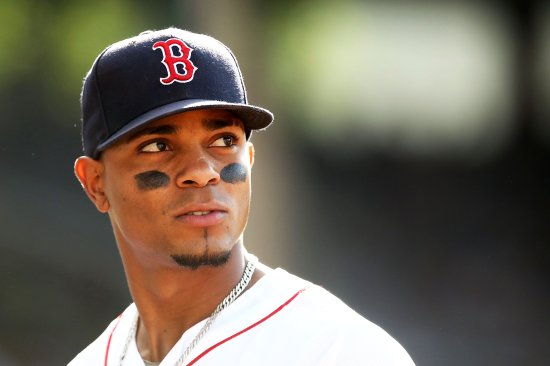
“There’s a big advantage if you’re looking for talent where not many other teams are looking”
The word spread like wildfire: A scout from the Red Sox was on the island. This was the summer of 2009, and Xander Bogaerts, then a 16-year-old high school prospect, knew opportunities like this were rare—scouts seldom came to Aruba. But there was a problem: Bogaerts had the chicken pox and a 102° fever.
He managed to make it to the field, and he impressed the Boston rep, Mike Lord, with his slick fielding and his bat. On a rock-strewn field lit by the headlights of a car, Bogaerts crushed a ball that sailed out of the park and smashed a window of a house across the street. Days later the Red Sox signed Bogaerts for $410,000, and in 2013 he became the fifth native of Aruba to reach the big leagues. This season he’s bloomed into an All-Star and an MVP candidate, hitting .332 for the Red Sox through last week.
[time-brightcove not-tgx=”true”]
On His Countrymen
“Curaçao and Aruba, we’re like family, and I feel a brotherhood with guys my age. Jurickson Profar [Rangers] and Jonathan Schoop [Orioles] are doing great, and Andrelton Simmons [Angels] and Didi Gregorius [Yankees], who are a little older, are making an impact. It’s funny that we’re all middle infielders. Some people joke about how the rocky fields back home must have made us better at reacting to ground balls. That may have something to do with it. But really, I think it’s total coincidence.”
On Diversity
“All you need to do is walk into our clubhouse to see that baseball is a true melting pot. It’s like this in practically every clubhouse you go into. In ours, it’s a great mix: You have the Dominican guys, the Venezuelans, a couple guys from Japan, guys from everywhere from California to Connecticut and me, the small-town kid from Aruba. Sometimes having all these different cultures in one room can make things difficult in getting people on the same page, but it all works for us.”
On Coming to the U.S.
“I know four languages, but where I come from, that’s not unusual. We spoke English and Papiamento at home. Dutch is an official language. I learned Spanish in school, then dropped it, but when I was in the minors, I started using it again.”
“People don’t realize how lonely you can be when you arrive here. It wasn’t easy for me, but at least I knew the language. I grew to like Florida, and now I love Boston, too. But Aruba will always be home.”
On Baseball in the Caribbean
“In Aruba the fields, the facilities and the equipment are not very good. We played a maximum of two games a week. Kids from Venezuela and the Dominican, they’re playing games almost every day. In the U.S., between high school and the showcases, they can play even more. That’s why there’s more of a learning curve for someone coming from Aruba or Curaçao when you get to the big leagues.”
Hometown Hero
After Bogaerts made his major league debut in 2013 and helped the Red Sox win a championship, he returned to Aruba and was greeted at the airport by a red carpet, a stretch limo, the prime minister and hundreds of screaming fans. He also became the first person to get a star on the Walk of Fame at a local mall. “That’s our Hollywood Boulevard,” he says. “I guess that means I’ve really made it.”